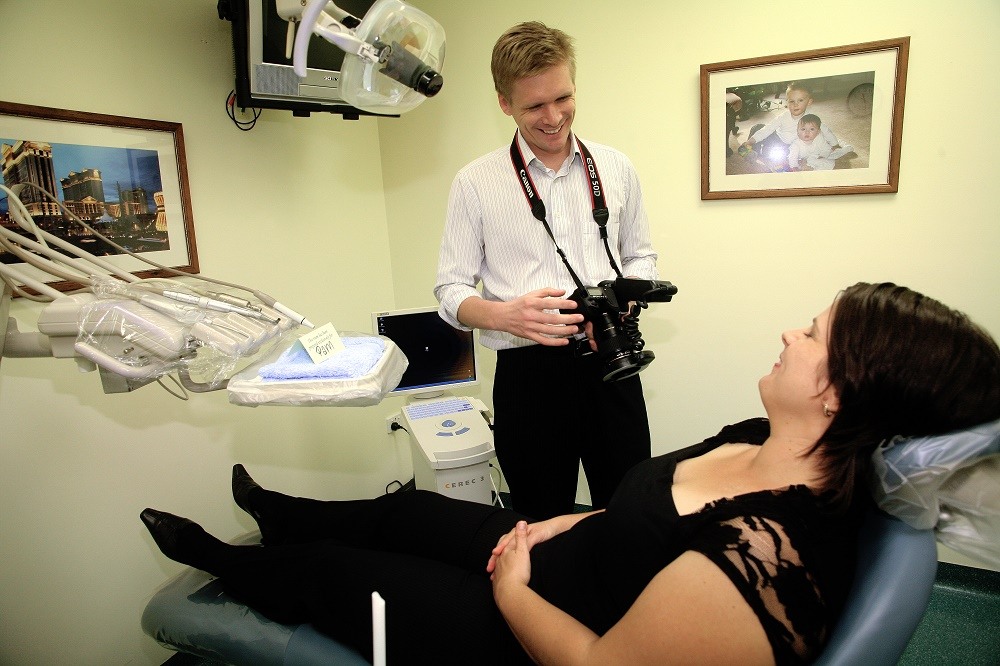Playing Science Poker: Do not be bluffed!
Reading science is like being a detective. I find it terribly fun.My latest investigation started because a colleague, who I do admire greatly, posted a link to a blog by Kevin Obrien. Reading it is a bit of fun, but there are a few good points that can be drawn out of it.
http://kevinobrienorthoblog.com/early-class-ii-treatment-t…/
Firstly, as stated elsewhere, this is what is known as a false choice. Either you agree with Kevin, or you are cast upon his pyramid of denial.
Perhaps there is a third option. Perhaps you are not a denialist, and you still don't agree with him.
In Kevin's article, the following is stated;
"When we consider reducing uncertainty on early class II treatment; we have evidence from several trials and a Cochrane systematic review. As a result, there is minimal uncertainty because this evidence suggests that routine early treatment does not provide any advantage over one course of treatment provided in adolescence in terms of; avoiding treatment, reducing complexity of Phase II treatment, the need for extractions and the final result of treatment. There is greater uncertainty about the effects on trauma and I will discuss this next week."
So let's have a look at it. Below is the link to the full article.
http://onlinelibrary.wiley.com/…/14651858.CD003452…/abstract
Lo and behold, who should be the author of the Cochrane reveiw, but Kevin himself.
He works at the University of Manchester along with co author Helen Worthington, and Badri Thiruvenkatachari. The final author, Jayne Harrison is from the University of Liverpool.
So let us look at what the Cochrane report is all about.
https://en.wikipedia.org/wiki/Cochrane_(organisation)
If we read through that, it tells us that the Cochrane report is largely meta-studies. Combining several randomised control trials to try and give a definitive or high confidence answer.
So let's look up meta-studies.
https://en.wikipedia.org/wiki/Meta-analysis
We see that there are a number of benefits of meta studies. But also some disadvantages which I will list for all the lazy people who didn't read them (or normal people...whatever you prefer).
Disadvantages of Meta Analysis.
- Several small weak trials do not make a robust one. I wonder if the studies included in the Cochrane review were robust or weak? Nope. It's right there in plain English at the end of the Cochrane report.
"The overall quality of evidence was low".
- Publication Bias. In English speaking literature, things shown not to work do not get published.
- Problems with statistical approach.
- Agenda driven bias.
"The most severe fault in meta-analysis [24] often occurs when the person or persons doing the meta-analysis have an economic, social, or political agenda such as the passage or defeat of legislation"
"A 2011 study done to disclose possible conflicts of interests in underlying research studies used for medical meta-analyses reviewed 29 meta-analyses and found that conflicts of interests in the studies underlying the meta-analyses were rarely disclosed"
Most meta studies do not disclose conflicts of interest in funding
Let's put our detective hat on and see if there is any conflict of interest.
The UK branch of the Cochrane is largely funded by the National Institute for Health Research. The NIHR is funded by the National Health Service.
https://en.wikipedia.org/…/National_Institute_for_Health_Re…
Dental schools in the UK also receive significant funding from the NHS.
The Cochrane collaboration was originally funded by the NHS.
So we can establish that the authors work closely with the NHS, are funded by the NHS and therefore, there is a conflict of interest and significant possibility for agenda driven bias.
The NHS is renown for choosing the lowest possible cost option, rather than the best possible outcome at whatever the cost. Not surprisingly, the lowest cost option was chosen despite the study saying that the other option had significant advantages.
Now let us look at the study itself. The final line of the study is:
"The overall quality of the evidence was low."
It should be pointed out that most of the review was derived from only three or four studies. Three or four!! That is a very low number.
Despite this, the conclusion is that;
"The evidence suggests that providing orthodontic treatment, for children with prominent upper front teeth, in two phases appears to significantly reduce the incidence of damage to incisor teeth (middle four teeth at the top) as compared to treatment that is provided in one phase when the child is in early adolescence. There are no other advantages for providing a two-phase treatment i.e. early from age seven to 11 years and again in adolescence compared to one phase in adolescence.
When functional appliance treatment is provided in early adolescence it appears that there are minor beneficial changes in skeletal pattern, however, these are probably not clinically significant. Similarly, the choice of functional appliance when compared to the Twin Block does not result in any advantageous effects."
In this, the authors betray their lack of restorative dentistry experience, and perhaps experience with dealing with patients in private practice in general.
Trauma to an anterior tooth early in life is one of the most expensive injuries that a person can suffer. Often over a lifetime, the cost of treating a traumatised anterior will significantly outweigh the cost of the orthodontics both biologically and financially. RCT. Internal bleaching. Re-treatment, post core and crown. Bone graft and implant. Replace implant......etc.
Hence, the huge advantage that they discovered they swept away as inconsequential.
The Harris Report of the Cochrane Report
On reading the Cochrane review we can come to the conclusion that ignoring the significant potential for agenda driven bias, the data is very poor and it is unclear whether two stage or one stage treatment provides better orthodontic outcomes. It is clear that several poor data samples does not make a good data sample.
However there is very significant reduction in anterior tooth trauma when two stage treatment is commenced and therefore it may be the preferred treatment when considered against the lifelong cost of dental trauma.
Like all decisions, patient preferences and clinical experience will significantly modify the actual treatment decision made.






